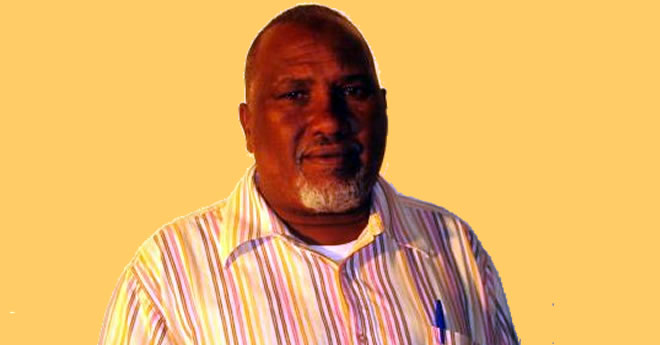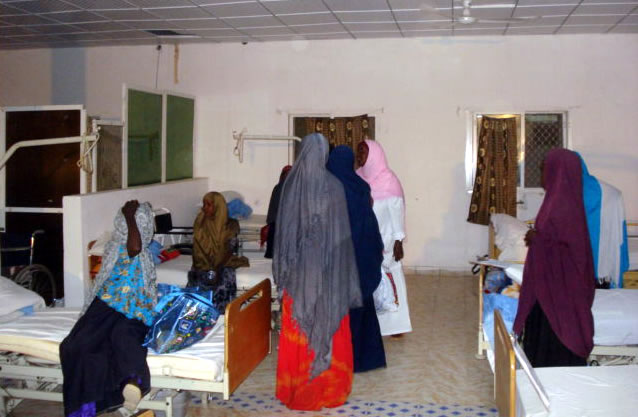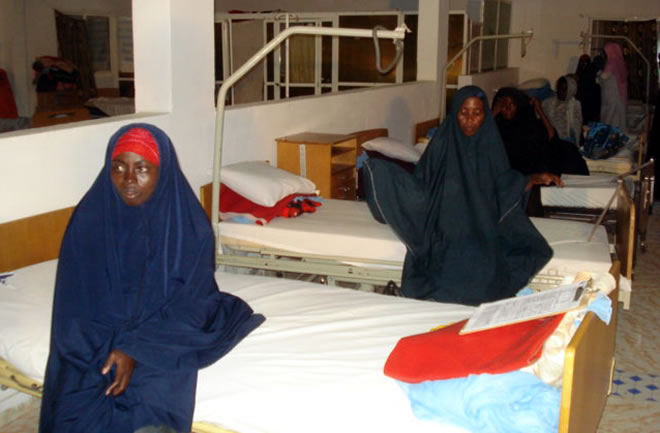
Dr. Ibrahim Saeed Osman, also known as Dr. Qaws
by Foosiya Cilmi Coofle
Wednesday, November 21, 2012
They come from a few blocks away or nearby villages. Some travel as far as a thousand kilometers for a chance to have their heath restored and to regain their dignity. Most have little money and all are suffering from obstetric fistula, a terrible and preventable childbirth injury. These women search desperately for a chance to return to their families and rejoin the society that often rejects them for their conditions. There are a few functioning hospitals in Somalia and almost none that are dedicated to treating obstetric fistula.
According to the National Fistula Hospital in Borama, Somaliland, “An obstetric fistula develops when blood supply to the tissues of the vagina and the bladder (and/or rectum) is cut off during prolonged obstructed labor. The tissue dies and a hole forms through which urine and/or feces pass uncontrollably. Women who develop fistulas are often abandoned by their husbands, rejected by their communities, and forced to live an isolated existence.” Fistula is an injury that affects many women around the world and specifically in third world countries such as those in the Horn of Africa. And because it is a repetitive childbirth injury, it can have devastating effects on the mother. Surgery is often required to reverse the damage, and women who suffer this type of injury live with much pain, shame and guilt.
Those who are fortunate enough to reach the fistula hospital in Borama are happy to learn the procedure is performed free of charge and their hospital stay during recovery is also free. The hope that many women have lies with one of the unsung heroes in Somalia and Somaliland. His name is Dr. Ibrahim Saeed Osman, also known as Dr. Qaws; a truly remarkable man who founded and now runs the fistula hospital in Borama. He is the son of Saeed Osman, a traditional elder who has been a leader in his own generation. Dr. Qaws has performed hundreds of procedures to correct obstetric fistula and gave many women the ability to once again be productive in their families and in their communities. It is not difficult to trace Dr. Qaws’ vision and desire to help others to his youth. He was a teacher and a mentor to many young people before he became a doctor. He taught many subjects at Hawo Tako Middle School in the nineteen eighties before the Somali civil war while he now teaches medical students at Amoud University in Borama.
Dr. Qaws graduated from the Somali National University School of Medicine and traveled overseas to advance his education and gain valuable practical experience. From a young age, Dr. Qaws was determined to improve the lives of those in his community and had a natural tendency to set goals and accomplish them. Dr. Qaws is known in the community as a caring and compassionate man and is sought after for his expertise with obstetric fistula. His family and educational background set the foundation for the person he is today and his efforts to eradicate obstetric fistula.

After many years of trying to establish a clinic that helps local women with their medical needs, Dr. Qaws became the first to create a hospital to address the fistula problem in the region. He is a hero not only to his community but to many in other regions as his hospital accepts patients from the entire country and even neighboring Ethiopia. And even though he started from scratch without any governmental assistance, there are now agencies that help advance his ideas and assist with his initiatives. I had the good fortune of meeting Dr. Qaws when I recently visited Borama. While there, I had the opportunity to witness firsthand how the Borama fistula hospital makes a difference in the lives of women suffering from this terrible condition. Dr. Qaws gave me a tour of the facility and explained the procedure and the recovery process. He also described the policy of the fistula hospital in Borama of never turning a patient away even though most women are unable to pay for the surgery. And in addition to the surgical procedures, the hospital also provides valuable education to patients on how to reduce the risk of repeated fistula injury.
One of the biggest obstacles facing Dr. Qaws is the primitive medical infrastructure in Somaliland where he and his colleagues must overcome many barriers on a daily basis. With no regulatory system and a severe lack of funding, health institutions function with inadequate equipment and a shortage of life-saving medicine and expertise. In addition, with a mostly illiterate population, health problems are compounded by lack of awareness and long-held cultural beliefs. And even though there are non-governmental organizations that provide general assistance and basic education, the needs of the community far outstrip the available resources. Yet despite the prevailing difficult conditions, Dr. Qaws managed to build and continues to run a hospital specializing in the treatment of fistula at no cost to the suffering women.

The question many of us ask ourselves is how we can help Dr. Qaws and others like him to continue the services they provide to women. To that end, I have recently joined The Fistula Foundation, the largest private charitable foundation supporting fistula treatment worldwide. The foundation provides funding for surgeries to treat obstetric fistula globally and through it, donations are sent to where they are most needed. The Fistula Foundation also allows donors to select individual hospitals, such as that of Dr. Qaws in Borama, to directly receive the gifts that are donated. Other ways of donating to help eradicate obstetric fistula is to contact a hospital such as the National Fistula Hospital in Borama directly and to send donations using the traditional money transfer companies also known as Hawalas. By donating or providing awareness, you are giving the ultimate gift to someone who would otherwise be sentenced to a life of severe pain, discomfort and unhappiness.
Foosiya Cilmi Coofl
[email protected]